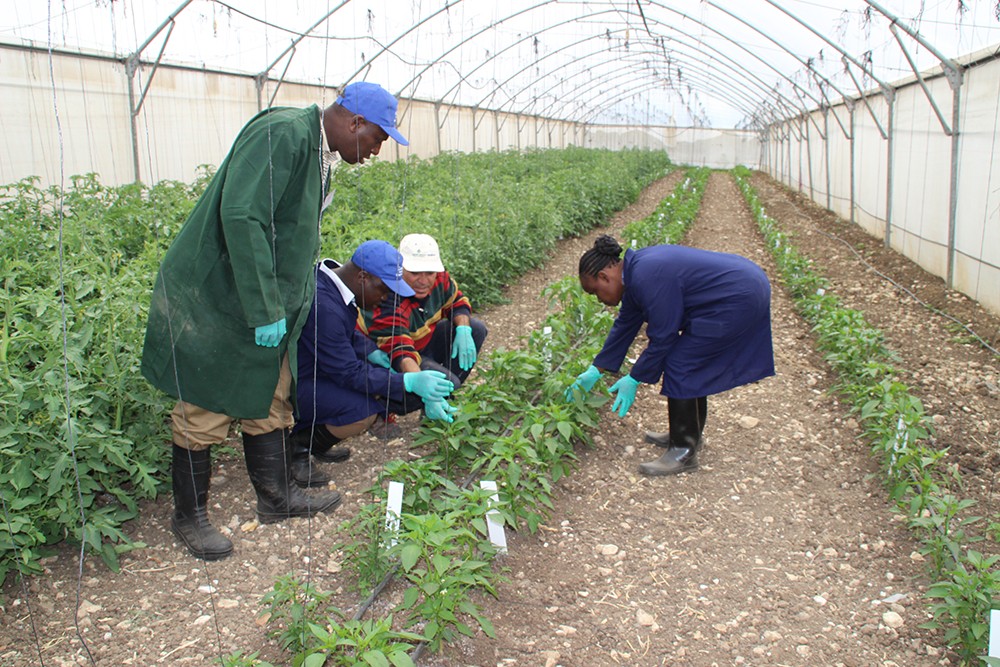Chuka University’s Demo Farm will Advance Arid Climate Agriculture
Very exciting things are happening at Chuka University in Kenya. The local community gave 500 acres of land to the university, and the Vice Chancellor, Prof. Erastus Nyaga Njoka has decided to convert it into a large demonstration farm to train both local farmers and students. The farm is intended to provide knowledge, employment and food, and is expected to pay for itself. It will serve as a national model for water management and dairy farming in an arid climate.
Prof. Njoka, a graduate of our Management of Higher Education Institutes programme, sent five senior faculty members from the Departments of Animal Sciences and Plant Sciences to Galilee International Management Institute for training tailor-made to advance this initiative. The faculty members were divided into two groups, one studied horticulture and the other advanced dairy farming. The month-long programme combined expert lectures with practical observations in the field. While they were here, I had the opportunity to hear them passionately describe the project that they are evolving.

"There is a special focus on youth", explained Dr. Grace Opetu Abucheli, Lecturer of Plant Sciences. "Young members of the community are not interested in the manual labour involved in agriculture, but there is a whole technological side to the industry that they are unaware of", she told me excitedly.
“We have to change the attitude of subsistence farming”, added Dr. Onesmus Munene Nderi, Assistant Lecturer of Animal Sciences. "If the farmers produce for a profit, they can buy what they need”.
Chuka is located on the eastern slopes of Mount Kenya, an arid region of the country, where agriculture is the central economic activity. Dr. Geofrey Kingori Gathungu, COD of the Department of Plant Sciences, was pleased to see the thriving agriculture in Israel’s similar climate. He listed for me what the knowledge they gained will enable then to do, "We will implement the technology on the demo farm and offer employment. We will contribute to food security and provide fresh horticulture produce. We will be a centre for water management." Dr. Gathungu explains that the large Ruguti River runs through the community and the lecturers will teach the local farmers to utilise it to water crops with drip irrigation technology.
.jpg)
Dr. Roseline Kafedha Kahindi, Lecturer of Animal Sciences, added that they will bring dairy cows to the farm and apply what they learned about choosing the right breeds, feeding, housing and management, demonstrating to all of Kenya that dairy farming is possible in an arid area. “When you see it, you think ‘this can work,’” she says.
Dr. Jafford Njeru Rithaa, Lecturer of Plant Sciences, says there will be an outreach programme to interact with the community and enhance the productivity of the local farmers. They also plan to interact with other institutions and to publish the innovations practiced on the demo farm, reaching as many as possible.
Dr. Gathungu says that the essence of what they learned was to examine the resources that they have and are able to influence in order to realise their potential. In a few months, our experts will be visiting Chuka University to check up on the progress of the demo farm. We look forward to sharing their successes with you soon.

